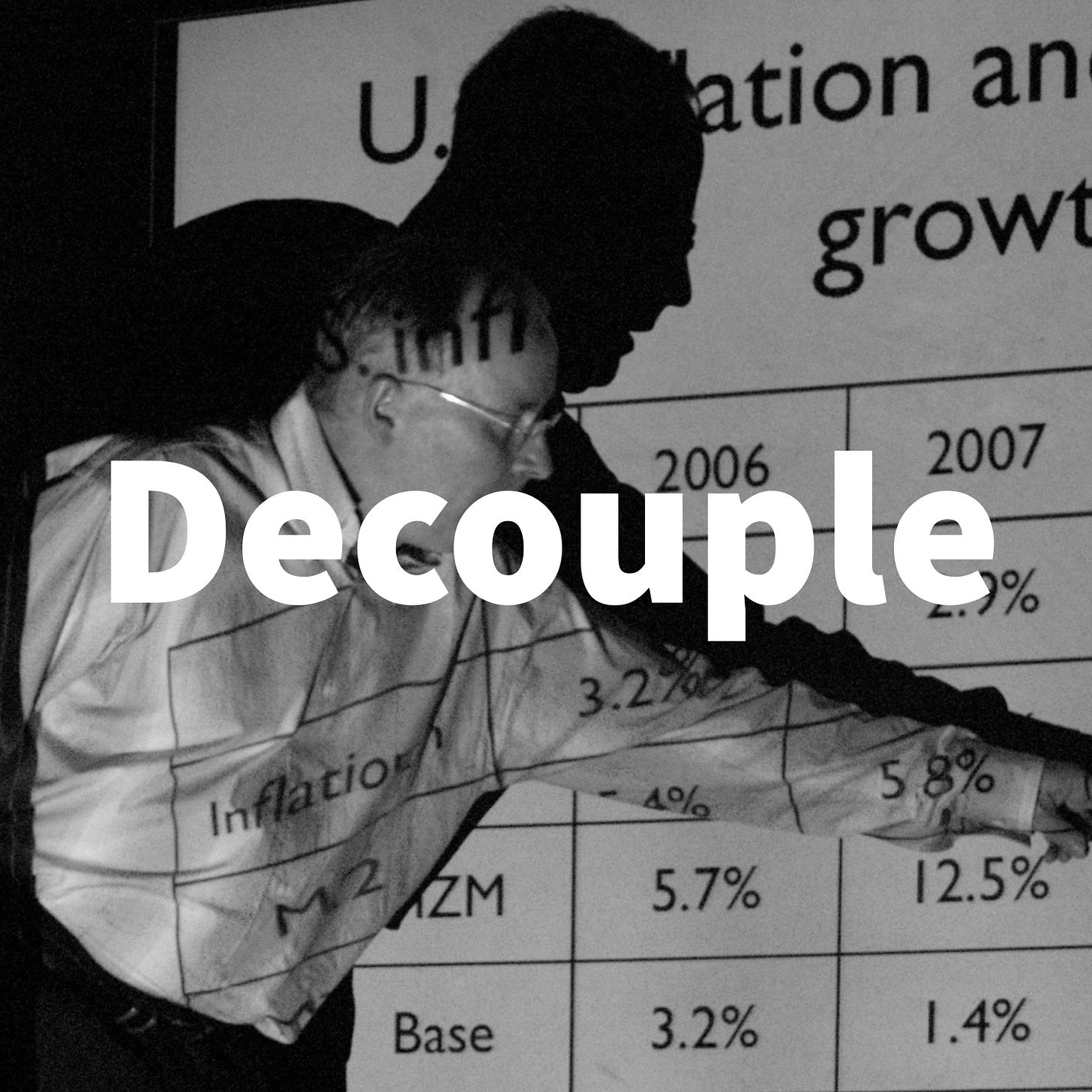Steve Keen, economist and author, joins me to explain how modern economics has catastrophically misunderstood the role of energy in our world and underestimated the risks of climate change through oversimple models. In this in-person conversation, we discuss the evolution of economic thinking since feudalism, the shortcomings of prevailing economic models, modern monetary theory, the role of state capitalism in funding large infrastructure projects, and much else.
In his economic critiques, Keen takes particular aim at William Nordhaus's DICE climate model, which assumes that by looking at the average temperatures of different places and comparing their economic activity, one can precisely predict the global economic impact of climate change in future decades.
Watch now on YouTube.
In a Nutshell
Keen traces how economic theory evolved from feudalism through mercantilism to classical and neoclassical economics, arguing that economists—save for a brief era of French physiocrats—lost sight of energy's fundamental role in the economy. He delivers a scathing critique of William Nordhaus's climate economics models, which he argues dangerously underestimate climate change impacts.
We Talk About
The historical evolution of economic theory
Theories of value and the role of energy in economic production
Utopianism in neoclassical economics
William Nordhaus's climate economics models
Public vs private financing of infrastructure
Modern monetary theory and the origin of money
Climate change and the future of civilization
"Technology without energy is a sculpture, and labour without energy is a corpse."
– Steve Keen
Some Takeaways
According to Keen, neoclassical economics fundamentally misunderstands money, banking, and energy's role in production
Current economic models, like those of Nordhaus, severely underestimate climate change impacts through flawed assumptions
Government-created money, rather than private financing, is crucial for major infrastructure projects, a concept understood by Thomas Edison and Henry Ford in their advocacy for the Tennessee Valley Authority’s Muscle Shoals hydroelectric plan
The physiocrats better understood energy's role in the economy than subsequent schools of thought
Deeper Dive
Keen's critique of William Nordhaus's climate economics models reveals fundamental flaws in how economists assess climate change impacts. Nordhaus's DICE model makes the extraordinary assumption that geographic temperature variations can be used to accurately predict economic impacts through time. For example, if New York is more productive than Florida due to temperature differences, the model assumes similar productivity differences would occur with global warming.
The models also assume that 87% (later revised to 85%) of GDP is negligibly affected by climate change, including all manufacturing, underground mining, and government services—simply because these activities occur indoors. This ignores crucial infrastructure dependencies and supply chain disruptions.
According to Keen, Nordhaus's latest paper predicts that three degrees of warming by 2100 would reduce global GDP by only 3.12% compared to a no-warming scenario. Even more extreme predictions of seven degrees of warming by 2200 estimate only a 20% GDP reduction. When translated to growth rates, this suggests warming would merely slow annual GDP growth from 2% to 1.87%.
Regarding infrastructure financing, Keen points to Henry Ford and Thomas Edison's advocacy for government funding of the Muscle Shoals hydroelectric project. They argued private financing would cripple such projects through compound interest costs, whereas government could create money directly without interest burden.
Keen shares his understanding of monetary theory to reveal how banks create money through lending (credit money) while government creates money through spending more than taxation (fiat money). This distinction is crucial for understanding how to finance major infrastructure projects needed for climate adaptation.
References
The Wealth of Nations (Adam Smith)
DICE Model (William Nordhaus)
The Coal Question (William Stanley Jevons)
Limits to Growth (Club of Rome)
Tableau économique (François Quesnay)
Mad Max (film)
Timestamps
05:12 History of economics in stages
14:20 Physiocracy
21:57 Classical economics
30:25 Energy blindness
36:18 Neoclassical economics
41:33 Utopianism in economics
44:40 Monetary theory
57:53 Climate change economics
1:22:07 State capitalism
1:25:49 What is money?
1:35:38 The future of economics amid climate change
Keywords
neoclassical economics, climate change economics, William Nordhaus, DICE model, Modern Monetary Theory, infrastructure financing, energy economics, Steve Keen, climate crisis, economic history, physiocrats, capitalism critique, climate modeling, public finance, monetary policy













Share this post